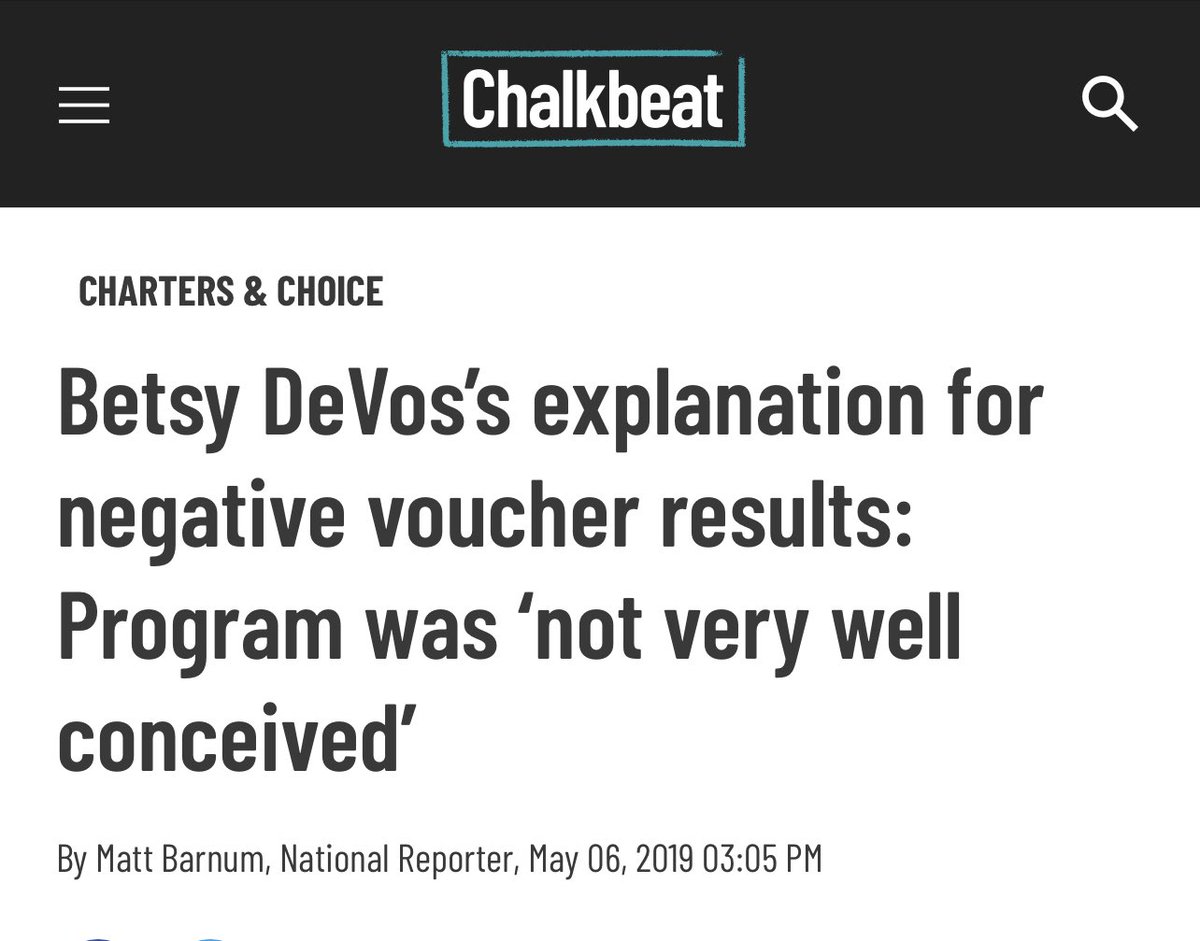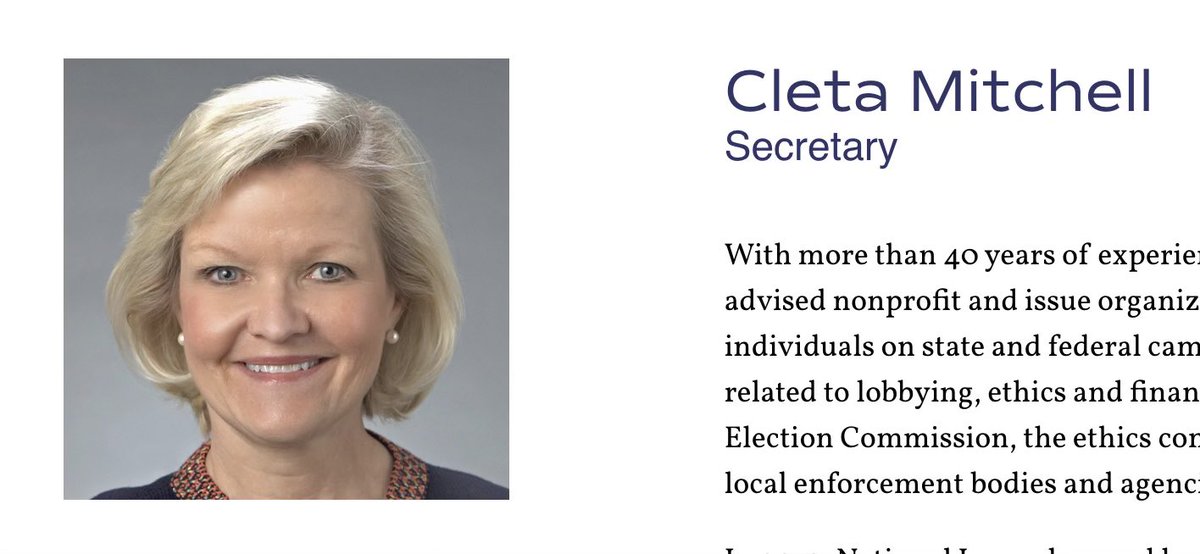🤬🤯😡🙄
🧵🪡
NO the evidence for #schoolvouchers isn’t “mixed.”
Voucher “empirical” research showing positive academic effects are no less a political tactic than this piece of garbage here—and by the same organizations.
#edchat
1/
🧵🪡
NO the evidence for #schoolvouchers isn’t “mixed.”
Voucher “empirical” research showing positive academic effects are no less a political tactic than this piece of garbage here—and by the same organizations.
#edchat
1/

Heritage, Goldwater, Cato and EdChoice form the entire favorable base of evidence for #schoolvouchers.
No reporter would consider a study like this a neutral “study”
2/
No reporter would consider a study like this a neutral “study”
2/

No one would say this “report” was anything but catnip and dog whistle for Right-wing talking points
4/
4/

And yet the “#schoolvouchers help student learning!” political spin also comes from the same groups. Without them that evidence doesn’t exist.
5/
5/
The greatest trick #schoolvouchers advocates ever pulled was convincing the world that “the evidence” favors vouchers.
That evidence doesn’t exist. Not really. It’s a phantom.
6/
That evidence doesn’t exist. Not really. It’s a phantom.
6/
A phantom propped up by dozens of so-called studies propping up #schoolvouchers from Right-wing groups, flooding the zone to confuse journalists and policymakers.
7/
7/
When in reality there are a tiny few of (very old, very small) credible studies showing good #schoolvoucher impacts.
The rest are devastating 👇
8/
dropbox.com/s/mraoem01grf7…
The rest are devastating 👇
8/
dropbox.com/s/mraoem01grf7…
Example: yesterday Heritage released that garbage woke #schoolchoice “study,” while the top #edpolicy journal in the country had a real study showing #schoolvouchers don’t help edu-attainment.
There is no better example of the state of voucher evidence than right here 👇👇👇
9/

There is no better example of the state of voucher evidence than right here 👇👇👇
9/


Journalists: Anyone telling you most studies show #schoolvouchers “work” is an advocate spinning you.
Anyone saying studies are “mixed” is well-meaning but under-read in this field. @DianeRavitch @Network4pubEd @NEPCtweet @FutureEdGU @BrookingsEd
/end
Anyone saying studies are “mixed” is well-meaning but under-read in this field. @DianeRavitch @Network4pubEd @NEPCtweet @FutureEdGU @BrookingsEd
/end
• • •
Missing some Tweet in this thread? You can try to
force a refresh












